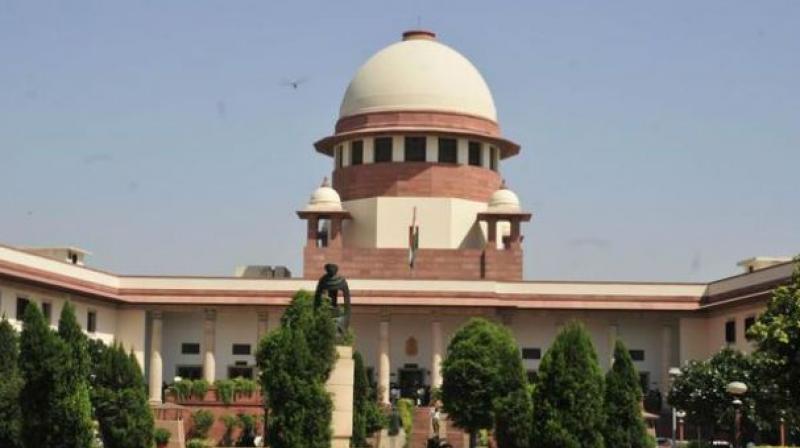Supreme Court to hear Rajiv killers' remission case on August 14

New Delhi: The Supreme Court on Thursday posted for hearing on August 14, petitions relating to the grant of remission to the seven convicts in the Rajiv Gandhi assassination case, who are in jail for the last 26 years.
A Bench headed by Chief Justice directed the matter to be listed for hearing on August 14 on a 'mention’ made by counsel Prabu seeking early hearing of the case, which was last heard in August 2016.
In August 2016 a three-judge bench of justices Ranjan Gogoi, P.C. Pant and A.M. Kanwilkar had adjourned the hearing after counsel for Tamil Nadu submitted that the review petitions were still pending. Subsequently the review petitions were dismissed against the findings of the five-judge Constitution bench that TN can release the convicts only after consultation with the Centre and consultation will mean concurrence or approval.
In December 2015 a five-judge Bench had held that the State has no power to order suo motu release of seven convicts, viz Murugan, Santhan, Periarivalan (whose death sentence was commuted to life sentence) and that of Nalini, Robert Pius, Jayakumar and Ravichandran, serving life term by granting remission. The court had held that in cases investigated by the CBI, the State can grant remission only with the consent of the Union Government.
However, the court had said the validity of the order passed by the TN government on February 19, 2014 to release the convicts by granting them remission will be considered afresh by another three-judge bench in the light of the principles laid down in this verdict.
The court had rejected the submission that life sentence would mean only 14 years and the trial courts cannot award fixed terms of sentence, viz 20 or 25 years or life sentence for the rest of their life. The right to claim remission, commutation, reprieve etc. as provided under Article 72 or Article 161 of the Constitution will always be available being Constitutional Remedies untouchable by the Court.

